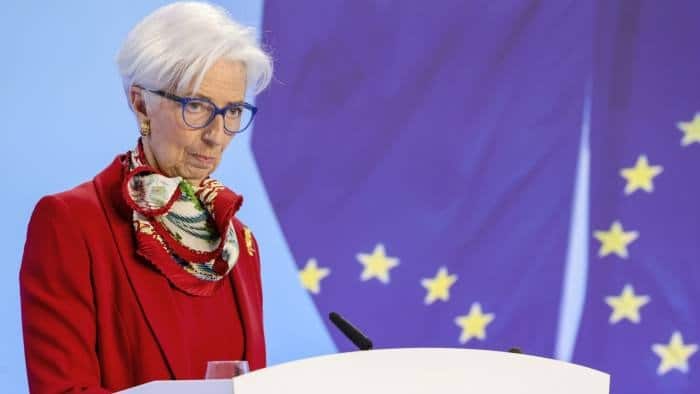With weakening growth and high inflation, Lagarde faces a difficult balancing act
This week’s European Central Bank meeting is set to be one of the most fiercely debated in months. For more than a year there has been a broad consensus among the eurozone’s monetary policymakers that interest rates need to go higher in order to tame inflation. Rates have been pushed up by 4.25 percentage points since July 2022. But with signs of an impending eurozone recession becoming harder to ignore — and annual price growth now at half its 10.6 per cent peak — the unity over the direction of travel is fraying.
The central bank’s governors are split: some prefer another, possibly final, 25 basis point rate rise, while others are pressing for a pause. And, following a slew of weak economic data, a narrow majority of investors are now expecting the ECB to hold fire on Thursday. ECB watchers are torn too.
Over the summer, indicators of activity in the eurozone’s manufacturing and services sectors pointed to a forthcoming economic slowdown. Higher interest rates, which are currently at 3.75 per cent, have constrained lending too. Indeed, on Monday, the European Commission downgraded the eurozone’s growth outlook for this year from 1.1 per cent to 0.8 per cent — with a contraction in its largest economy, Germany.
The hold camp argues that slowing economic growth could bring inflation down without further rate rises, and that an even higher cost of credit risks a deeper slowdown. A pause would then allow the ECB to monitor developments, including the pass-through of previous rate rises, until its next meeting in late October. While this narrative is plausible, investors may be underplaying the probability that the central bank ends up nudging rates higher at this meeting.
First, core inflation — a measure of underlying price pressures — remains too high. Although easing, it was 5.3 per cent last month — well above its historic average. With the labour market still tight, annual pay growth is adding to price pressures, particularly in services.
Second, while economic growth has weakened more than anticipated, a few upside risks to inflation have also emerged. Oil prices have risen and Europe’s reliance on liquefied natural gas means it remains exposed to global supply shocks, including recent strike action at plants in Australia. Alongside still elevated core prices growth, these shocks could keep inflation — and medium-term inflation expectations, which edged up in July — higher for longer.
Third, after falling behind on inflation the ECB has preferred to convey a hawkish bias. Erring on the side of doing too much rather than too little on inflation has been its broad message. The ECB has gone against market expectations in the past, and may feel the need to do so again on Thursday to underscore its inflation-fighting credentials. After all, president Christine Lagarde used her Jackson Hole speech last month to outline how structural shifts risk bringing more persistent price pressures and uncertainty, and warned “the fight against inflation is not yet won.”
There is a possibility that markets interpret a decision to hold as a signal that the hiking cycle is complete. Lagarde could try to articulate a hawkish hold or skip, and create room for a potential rise next month. But that may be hard to pull off. If investors assume rates have peaked, financial conditions could loosen.
There are potential pitfalls in either direction: keeping rates on hold invites criticism that it is giving up too early, but raising them risks making a looming economic downturn worse. Either way, Lagarde needs to firmly express the ECB’s commitment to meeting the inflation target, and say that cuts remain a distant prospect. It is a tough call, but to get that message across, actions would speak louder than just words.
Source: Financial Times



